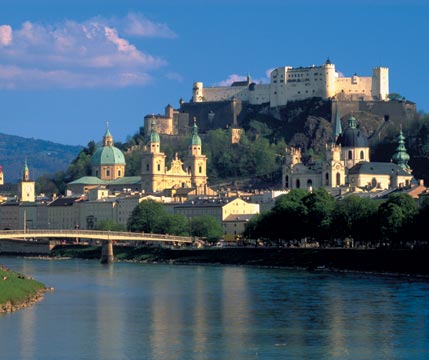Cambridge, MA. My impression from the Catholic press, and the debates that make the news is that many people assume that theology is just a matter of expressing opinions, liberal or conservative, loyal or dissident, about how things should be in the Church. Everyone jumps up with opinions, theology is a matter of common sense, novelty or adherence to tradition — while those who disagree with us are probably self-serving in their (ignorant) positions. Theology seems easy, if controversial. But in fact theology is hard work, much of it inglorious and largely unnoticed. In the conversations that are the life blood of theology, we get somewhere only when we work and talk together over a long period of time.

The preceding paragraph — unasked for, to be sure, by the innocent reader of this column — may seem all the more odd when I now add that it was prompted by my trip last week — rather quick, but most pleasant — to Salzburg, Austria. I traveled there for the 2nd conference of the European Society for Intercultural Theology and Interreligious Studies (ESITIS), this year with the theme. “Interreligious Hermeneutics in Pluralistic Europe.” Yes, we did have time for dinner out and for a tour of the old city (and no, we did not run into Sound of Music mementos, though Mozart [in his birthplace] was everywhere) — but most of the time was spent at the St Virgil Conference Center (of this very old Archdiocese), in long discussions of topics that were theological, sociological, comparative, rooted in texts and in fieldwork. The members of ESITIS (I was not a member, only an invited guest) come from all over Europe, including Scandinavia and Latvia; there was even a scholar present from Lebanon. The group was ecumenical, though almost entirely Christian. At Salzburg there was no expectation that one Church has all the answers — nor any hostility toward any particular Church either. It was also an impressively diverse group — while very European, of course — with men and women of all ages participating, from the 70s to at least one paper-giver who was just 21. (Just take a look at the pictures, from each day of the conference, at the website.)
Everyone settled in rather quickly for three days of conversation on topics of theological interest that had much to do with the future of Christianity in Europe. The program with its highlights is still available online, along with the pictures, so I need not write at length about what went on, except to note the major sessions (which themselves have abstracts at the website): Kajsa Ahlstrand (Uppsala), spoke on “The Use of Texts;” David Cheetham (Birmingham, UK), on “Scriptural Reasoning and Interreligious Hermeneutics;” Anne Sofie Roald (Malmo University, Sweden), on “Sacred Text and Social Context: Family and Gender;” John Chesworth (Oxford), on “Polemical Revival: Attacking Each Other’s Texts;” Andreas Nehring (Erlangen), on the question, “Is Interreligious Hermeneutics Possible in Light of the Postcolonial Deconstruction of Religion?;” and I spoke on “Comparative Theology,” how I do my blend of Christian and Hindu studies. There was a lot to reflect on in these plenary addresses — but there is still more, so if you do read the abstracts at the website, be sure also to note the titles and speakers for the very interesting paper presentations.
It would not be easy to summarize the results of the three days of conversation, and I will not even try: every paper and discussion raised still more issues and possibilities about how to study religion and how to express the faith in terms relevant for both politics and society today. Yet as one of the only Americans at the conference, I am admit readily that I was impressed by the seriousness and patient deliberateness of this gathering of European scholars. The issues facing religious people in Europe are real, the questions about the future complicated and unsettling, and the demands on theologians nearly overwhelming. We have to know our own tradition in its historical sources, and also know other religions — and yet too think not only about where religions have been, but where they are going to be in 10 or 20 years. At the end, we saw more clearly the hard things we need to be thinking about, if religion is to be discussed articulately in the next decades.
While the media favors sound bites and controversy in the Church and among religions, but of what captures the headlines if far less important than the small, slower steps that theologians take. It is in meetings like ESITIS — and its counterparts around the world — that the future of our understanding of ourselves as intelligent religious persons is being worked out, written, taught. Thank God for giving us brains…






